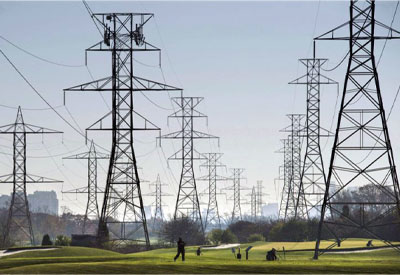Rising Cost Estimates Prompt Ontario to Rethink Private-Sector Power Project

August 17, 2017
On July 31, NextBridge Infrastructure submitted an application to the OEB for permission to build the proposed transmission line.
Included in the filing is the estimated development and construction cost of the project: approximately $777.2 million, a good deal more than the original estimate of about $419 million.
The filings say the project could increase the average Ontario home hydro bill by approximately 30 cents per month over a 25-year period.
The latest price tag evidently raised eyebrows around Queen’s Park, as Ontario Energy Minister Glenn Thibeault wrote an Aug. 4 letter calling on the Independent Electricity System Operator (IESO), which manages the province’s power grid, to update its “need assessment” for the project.
In doing so, Thibeault cited “significantly higher” cost estimates for the project, which would bolster northwestern Ontario’s electricity supply, especially for the mining industry.
“The scale of the cost increases is very concerning to the Ontario Government and it would be appropriate for the IESO to review all possible options to ensure that ratepayers are protected,” wrote Thibeault, who asked for the findings to be delivered to his ministry by Dec. 1.
Outrage over Ontario’s hydro rates spurred the Liberal government to roll out a plan this spring to lower electricity bills by an average of 25 per cent by July 1.
Steven Stengel, a spokesperson for NextBridge Infrastructure, said costs jumped because of factors outside its control. As one example, the project’s target in-service date was bumped to 2020 from 2018 at the request of the province.
The project’s design was also updated to better suit the terrain in northwestern Ontario, and the proposed transmission line was lengthened by 50 kilometres “to accommodate Pukaskwa National Park and stakeholder feedback, including First Nations and Metis communities,” Stengel said in an email.
“In spite of these increases, this project continues to present the most cost-effective way to serve the growing power needs of Northwest Ontario,” he said. “The project will create good jobs and economic benefits for the local communities, while expanding the delivery of reliable electricity through the province.”











![Guide to the Canadian Electrical Code, Part 1[i], 26th Edition– A Road Map: Section 56](https://electricalindustry.ca/wp-content/uploads/2022/11/Guide-CE-Code-2.png)



